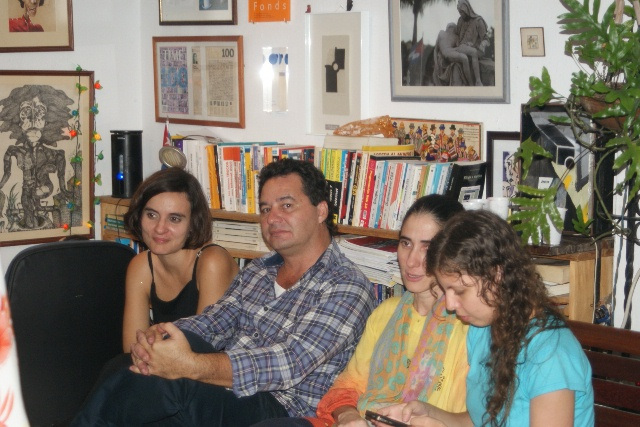
I always remember from Oedipus: I am a toy in the hands of destiny. Maybe the life of Angel Santiesteban, prominent Cuban writer and opposition blogger, is also marked by that concept. But the Kafkaesque style of totalitarian societies where fatum is a metaphor for the State, has to be taken into account.
Making the apology that friends usually make would detract from the objectivity of this article, and would not be taken into account by the readers. What I am going to try to show is that in his trial there are evident arbitrary procedures that yield as a consequence an extremely severe sentence for a crime that was not sufficiently proven.
Last January 15 the Supreme Court denied the appeal by Santiesteban’s lawyer; without responding to the doubts that led to the filing of the Appeal under the grounds set forth by current Cuban law, which were not recognized in the final ruling of the Supreme Tribunal.
One must remember that it is the mother of the writer’s son who initiated the suit for “unlawful entry” and “injuries.” But she changed her statement four times, and if she could not damage him more it was because her main witness “after having testified in police headquarters, agreed to make a home video, which is in the file, where he alleged that he lied under the guidance of the plaintiff, who made promises of personal benefits,” as stated in the appeal documents.
The defense witnesses were dismissed by the Chamber, in spite of the fact that “after having been advised to tell the truth and of the criminal penalty for failing to do so,” they swore that on “the day of the events, July 28, 2009, at the time in question, Santiesteban was to be found in a different place and distant from the home of the complainant.”
Santiesteban’s younger son testified that his father was not at his home on the day on which the events supposedly took place. But that does not disprove, but rather corroborates, the statement of the two people who testified that on July 28, 2009, between noon and 6 pm, Santiesteban was with them, so that he could not have committed the crime of which he was accused, or it can’t be proven; as it also is true that he was not at home with his son.
Yahima Lahera, a teacher at and director of the primary school of Angel Santiesteban’s son, testified that the boy confessed to her that his mother made him make statements that incriminated his father.
According to the defense attorney, Lic. Miguel Iturria Medina, proper use of the Penal Code was not made because a sanction for the crime “unlawful entry” was imposed that exceeds by a year the maximum limit provided for by the Code. And as far as the crime of “injuries,” the maximum sanction was applied without having proved the causal relationship, and once again, without the presence of the accused at the place of the events having being sufficiently proven.
Santiesteban’s attorney also said: “We believe that the chamber has rejected all exculpatory evidence and welcomed, against the accused, every detail detrimental to him, in order to arrive at an extreme judgment that leaves him defenseless.”
May these words serve as a call to international public opinion asking that, as stated in the Appeal, Angel Santiesteban is entitled to have all the errors and obscurities that his lawyer has discovered heard, and because of which he has petitioned for the sentence to be nullified in order to hold, in the future, a more objective process.
Angel Santiesteban has received several national and international recognitions such as the Juan Rulfo Mention Award of 1998, the UNEAC award in 1995, the Cesar Galeano Award in 1999, the Alejo Carpentier Award in 2001, and the House of the Americas Award in 2006. He is also author of the blog The Children Nobody Wanted.
Translated by mlk
8 February 2013
